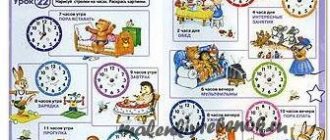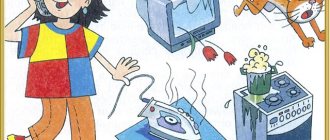The benefits of riddles for children
The benefits of riddles for children are indeed not exaggerated, as evidenced by the opinion of authoritative psychologists and teachers. Often the genre very closely borders on the fairy-tale, without being devoid of a logical grain, which is much easier to perceive through the prism of “Guess it!”
Thus, even at the stage of the emergence of Russian culture, the word “guessing” meant reflection and in-depth study of some issue, so it is no wonder that sometimes a comic charade contains much more meaning than one might initially think.
But it’s no secret that many children sometimes refuse to “use their brains” on this or that issue, showing all possible resistance to dry facts. In this case, a good old riddle comes to the rescue - a sure-fire way to make a schoolchild think, who will gladly get involved in the proposed game, especially if the parents encourage his participation in every possible way, not skimping on praise, and perhaps even on symbolic gifts.
Riddles develop children's ingenuity and intelligence
But riddles for children are not only about logical thinking, but also about filling many other gaps in a child’s development. Among them:
- development of artistic imagination and poetic perception of the information provided;
- acquisition of non-standard thinking skills;
- the ability to concentrate on a specific artistic image, studying its various facets and discovering something new in them;
- memory training;
- improvement of speech development;
- broadening one's horizons and developing curiosity.
The value of such activities also lies in the fact that they help to look at a familiar subject from a non-standard perspective, to reveal its new qualities that the child has never thought about before. In this case, you can link the mystery object with the events currently occurring.
For example, when teaching a child to cut and sew, you can wish for a needle or thread, and while walking in the park – a wish for a road or trees. Spontaneity is also encouraged, as it helps train the ability to quickly switch from one subject of study to another.
And in order for the child to grasp the very essence of such charades, the importance of each word in the text, on which the answer may depend, should be explained.
See also:
How to teach a child to solve problems in mathematics grades 1-4?





